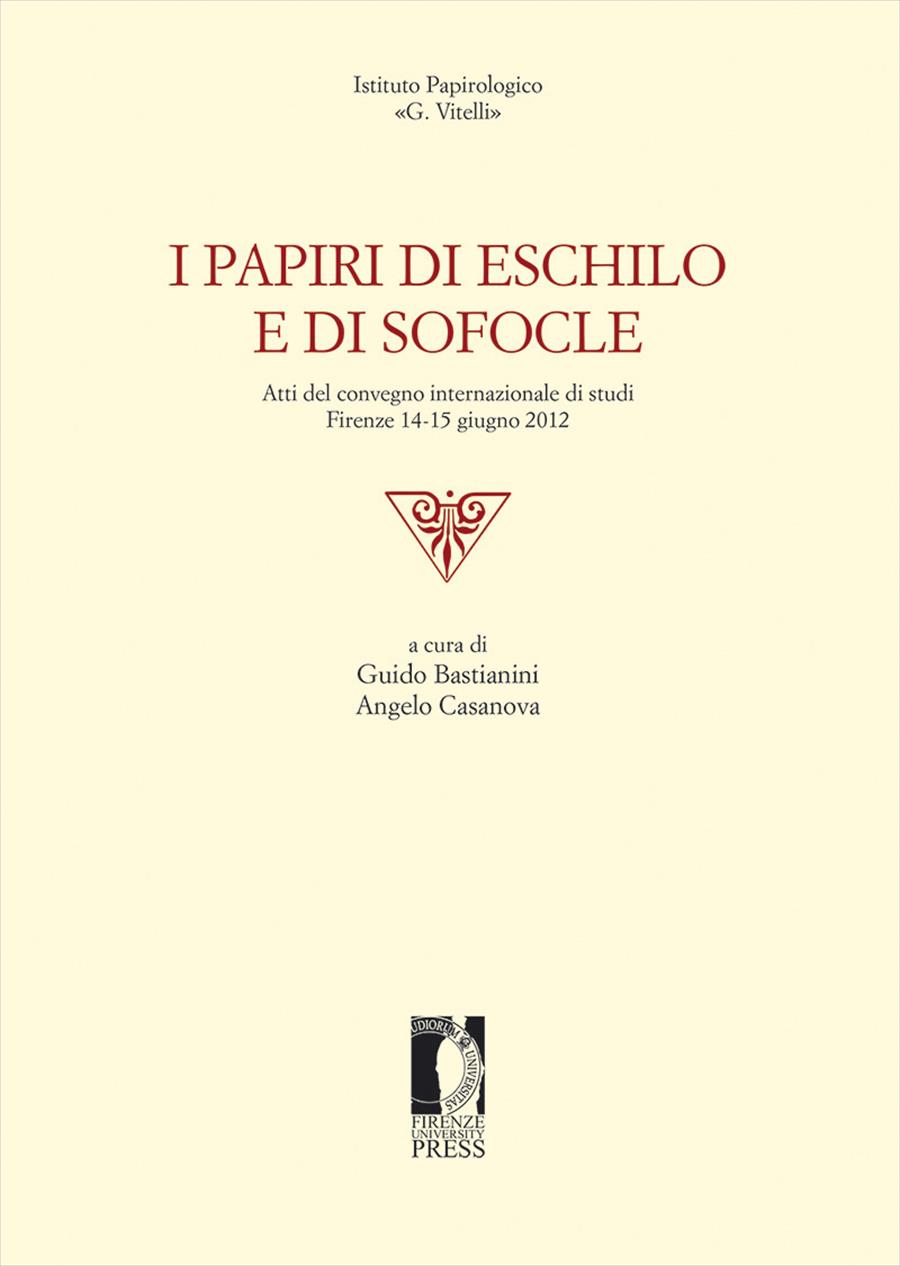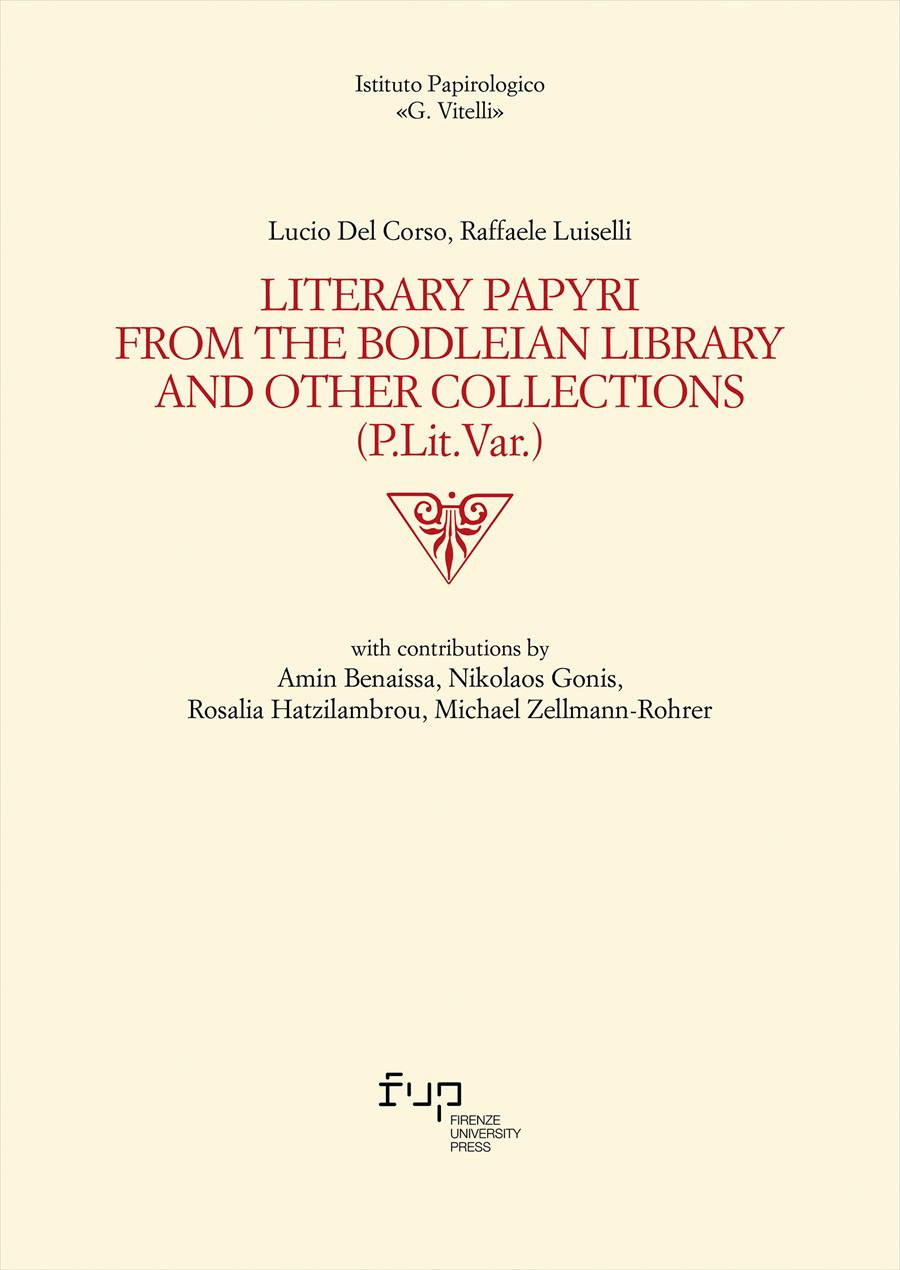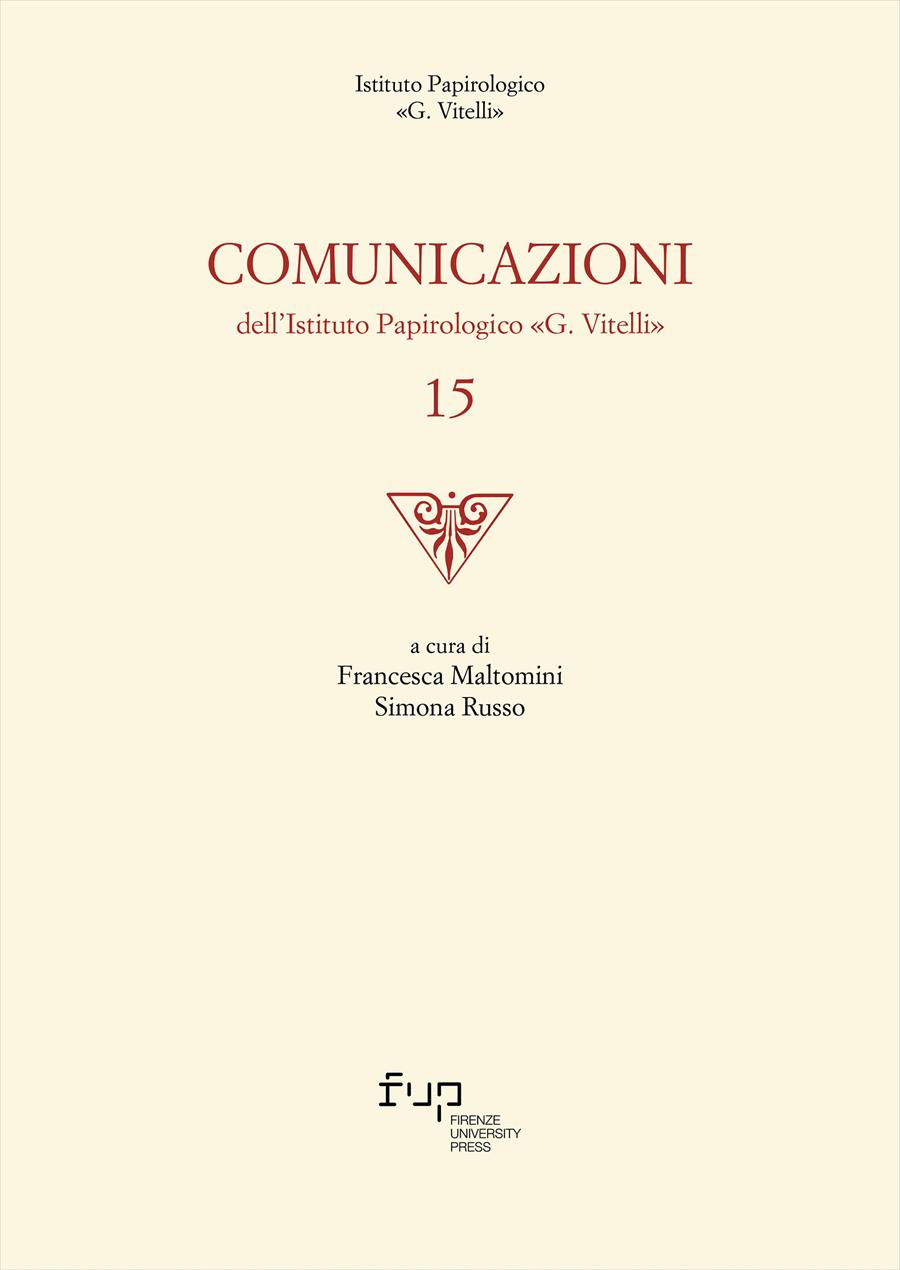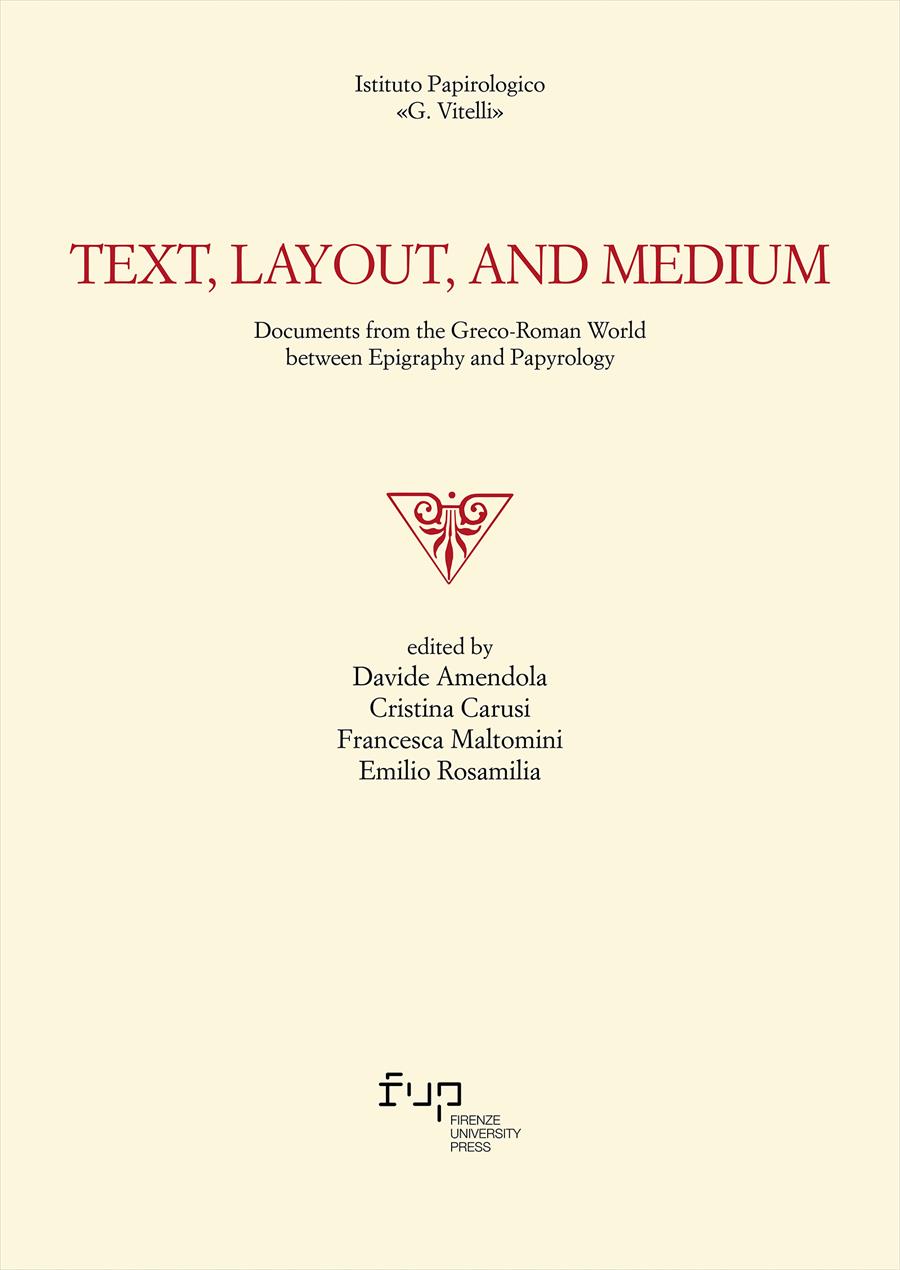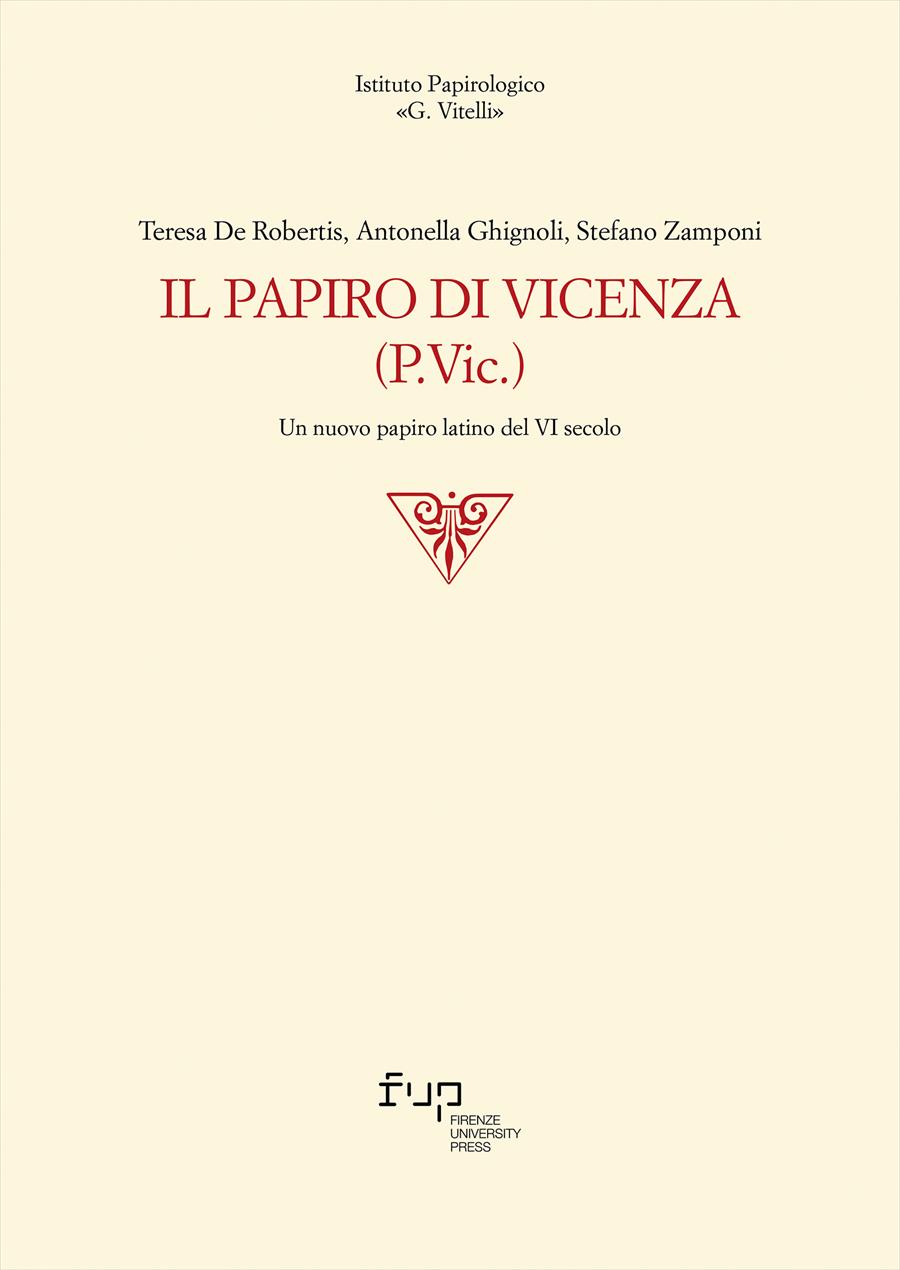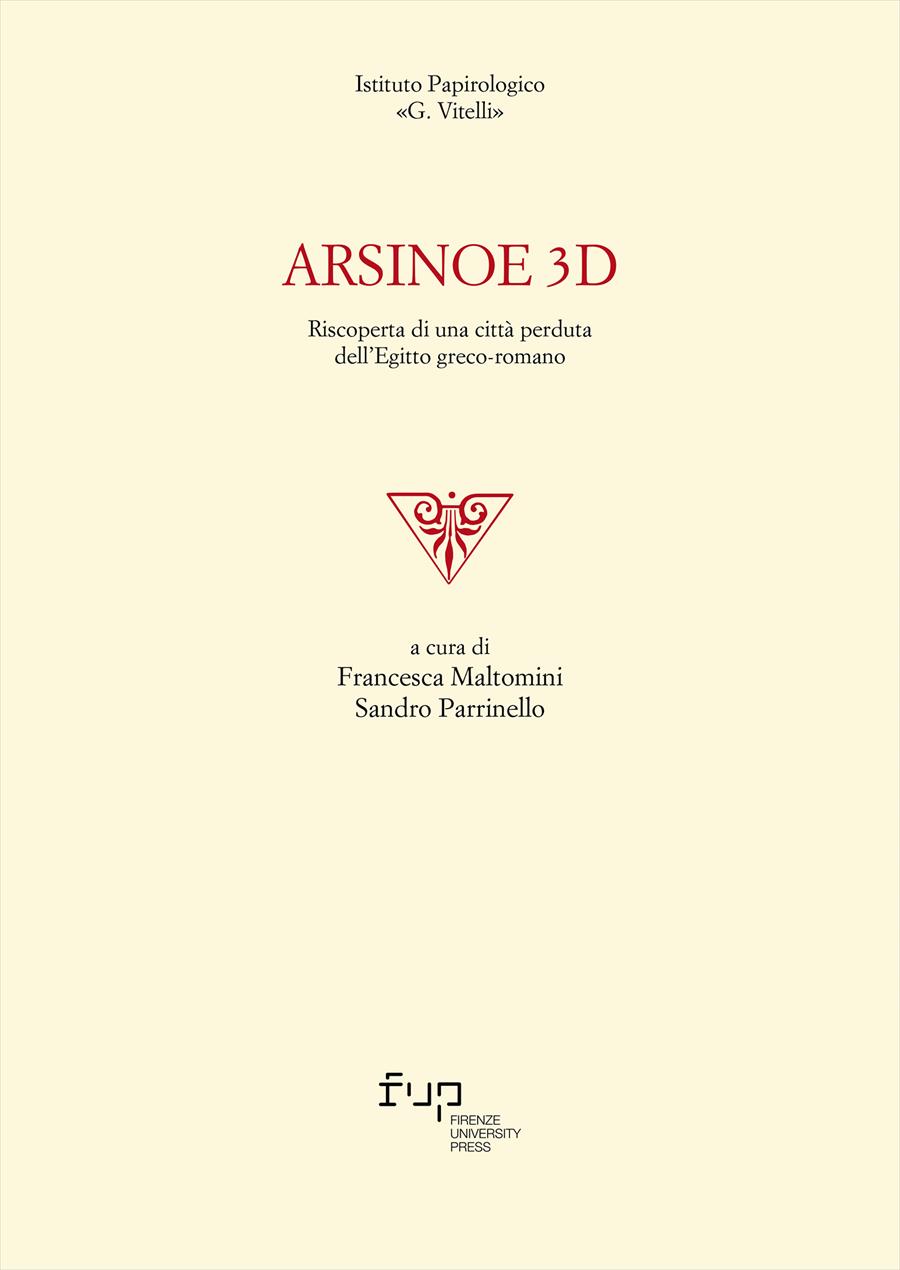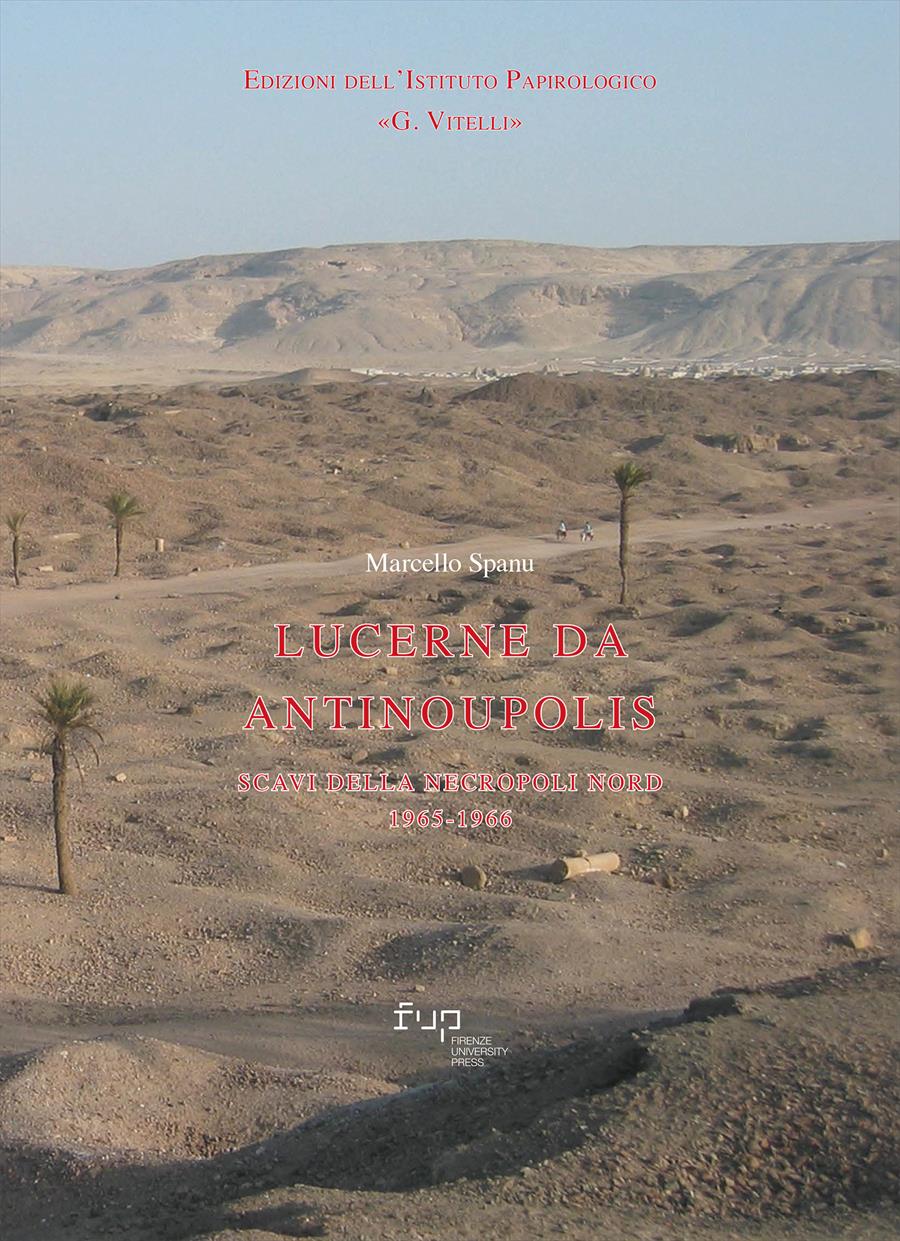I papiri di Eschilo e di Sofocle
Atti del convegno internazionale di studi. Firenze, 14-15 giugno 2012
- Edited by:
- Guido Bastianini,
- Angelo Alfredo Casanova,
The volume contains the transcription of the reports presented at the International Conference held in Florence on 14th and 15th June 2012: there are 15 original essays, written (upon request) by authoritative scholars of various Italian and foreign universities, on the important contributions made by their papyrus finds over more than a century to the knowledge of the lost works by Aeschylus and Sophocles, as well as on the value of the papyri for the constitution of the text of their preserved tragedies. The essays are equally divided between Aeschylus and Sophocles, and touch on all the major questions which the study of papyrology has raised for the philological and literary research on the two great tragedy writers. Both for the prestige of the authors and for the variety of the topics addressed, the volume offers an interesting and authoritative picture of the 'state of the art' of the studies in this regard, in light of the interrelationships between papyrology and Greek literature.
- DOI: 10.36253/978-88-6655-387-8
- Series: Edizioni dell’Istituto Papirologico «G. Vitelli»
- Scientific Board
- Language: Italian
- Subjects: Linguistic Papyrology
University of Florence, Italy - ORCID: 0000-0001-5338-4050
University of Florence, Italy
- Publication Year: 2013
- Pages: 266
- eISBN: 978-88-6655-387-8
- Content License: CC BY 4.0
- © 2013 Author(s)
- Publication Year: 2013
- Pages: 266
- ISBN: 978-88-6655-386-1
- Content License: CC BY 4.0
- © 2013 Author(s)
Bibliographic Information
Book Title
I papiri di Eschilo e di Sofocle
Book Subtitle
Atti del convegno internazionale di studi. Firenze, 14-15 giugno 2012
Editors
Guido Bastianini, Angelo Alfredo Casanova
Peer Reviewed
Number of Pages
266
Publication Year
2013
Copyright Information
© 2013 Author(s)
Content License
Metadata License
Publisher Name
Firenze University Press
DOI
10.36253/978-88-6655-387-8
ISBN Print
978-88-6655-386-1
eISBN (pdf)
978-88-6655-387-8
eISBN (xml)
978-88-9273-498-2
Series Title
Edizioni dell’Istituto Papirologico «G. Vitelli»
Series ISSN
2533-2414
Series E-ISSN
2612-7997
